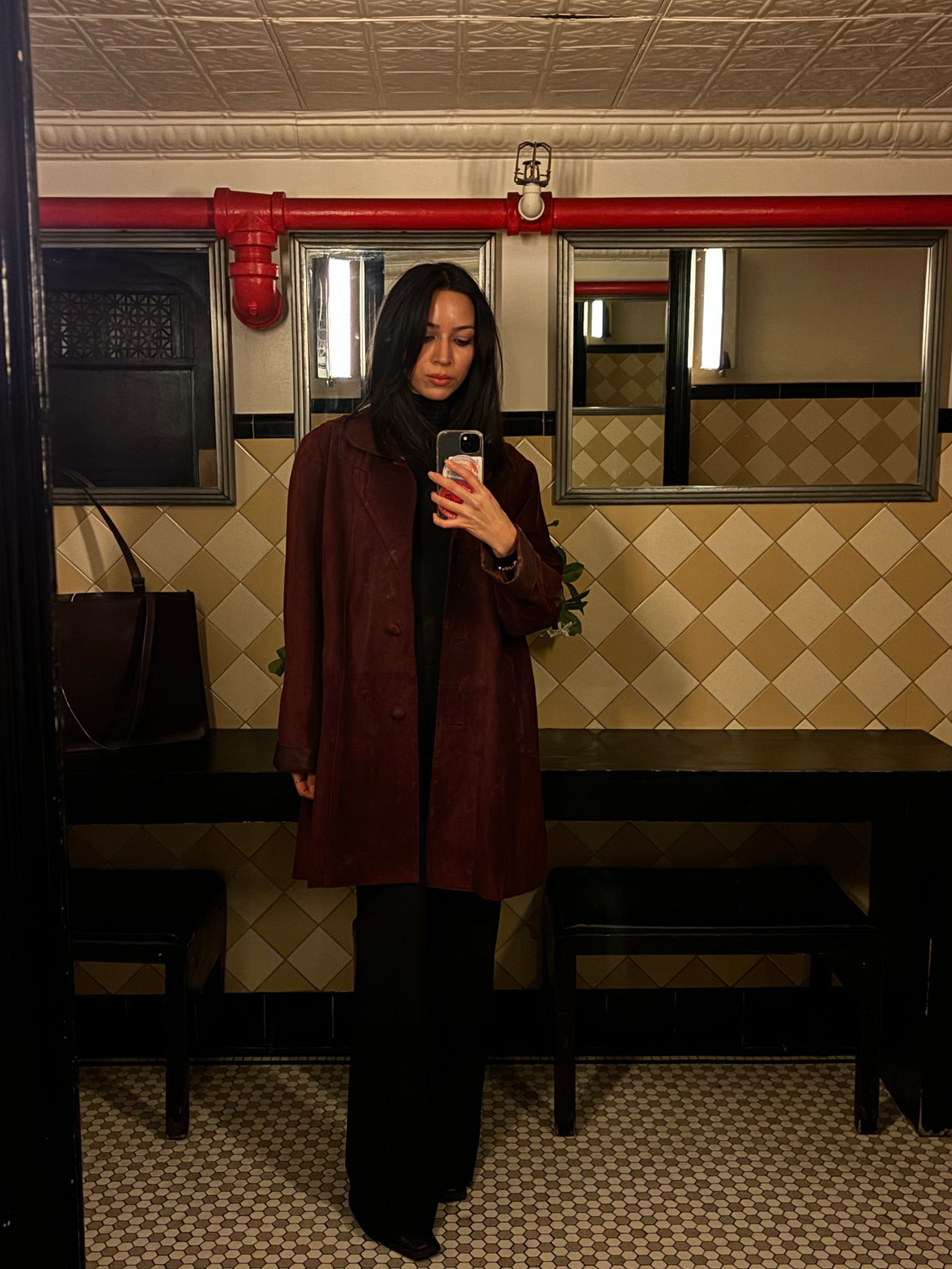Surgeons will judge your dirty belly button, btw
and other things i think you should know
Happy Thanksgiving! It’s my favorite holiday. I also love Thanksgiving week because we (Americans) fall into a week-long collective temporal distortion, and no one knows what day it is. This is the time to make money moves, FYI. Which is why I’m publishing on a national holiday.
Today’s newsletter covers a song using laundry to help you discern different political ideologies, a book to make you feel insane, and a must-read personal account by a reporter who became unhoused after severe manic depression. I also include a pulse check of health news, including an update on David Beckham’s biotech venture. Speaking of biotech, I saw Daisy Alioto’s husband’s play where an adaptogenic/psychedelic drink founder pitches a VC.
WHAT I’M INTO
Can someone tell me who’s doing Ghia’s branding? Their Coming Soon pillcase beverage holder, Le Pill, is targeting me and me only. It’s working.
Of course, I went to the Feed Me 2nd Anniversary Party with one friend and ran into more friends (including Daisy!). If you didn’t already know, Emily is SO sweet, and you should subscribe to her stuff.
Press play: “Mum Does the Washing” by Joshua Idehen
Joshua is a Nigerian-British spoken word artist and musician who MUST be on your radar. I’m not kidding. The first time I heard this song, I was zooming through the Canyon to the Studio City Erewhon with KCRW in the background after my high school best friend’s baby’s birthday party over Veteran’s Day Weekend. This song was so good that I replayed it twice in the Sportsmen’s Lodge parking lot and sent it to three of my friends before walking in to buy fruit + nut bread. Watch the music video! Backed by a jazz tune reminiscent of buzzing worker bees, he delivers: “The World, according to your mum doing the washing.” He then outlines various political beliefs with stunning and stylish visuals. You’ll probably also want to listen to this song twice through. Why not play the whole EP while you’re at it? My two favorite lines are:
“Male feminism: That one time I did the washing I told everybody I did the washing. I blogged about it, bragged about, took a selfie, Insta story. Went on TV, won an Oscar. Went on Fortnight, did a dance. I am an ally. Hashtag me too.”
and:
Borrow from ur local public library: The Trial by Franz Kafka
What’s your biggest nightmare? Mine is antimicrobial resistance. For Franz Kafka, I imagine it was catching laryngeal tuberculosis and dying at 40 (100 years ago). For Josef K., Kafka’s protagonist, I suppose it’s his life as depicted in The Trial. He wakes up one day to find that he’s being arrested for committing a crime. No one will tell him what it is. They search his room sans warrant. They don’t actually lock him up, so he’s free to keep living life until trial. Perhaps it’s slander? To prove his innocence, K. navigates an opaque and bureaucratic legal system to the point of insanity. We watch him do some sketchy things, but those aren’t why he’s in trouble. In some ways, The Trial is about the economy of vibes and attention. This is one of those books many people reference and are loosely familiar with but may not have read since high school…if that. The book doesn’t have a happy ending, but it’s the first time in 281 pages that K finds peace. Kafka captures the chaos and absurdity of the human condition so well that we’ve coined an adjectival derivative form of his surname—Kafkaesque. (Think: movies like After Hours (1985) and Uncut Gems (2019).)
Anti-algorithm news: “The Invisible Man” by Patrick Fealey (Esquire)
One morning, when I was seven years old about six months, I turned a dark hallway as a shortcut to my dad’s office and bumped into a stranger on the floor. “Hey,” he gruffed. I screamed and ran to my dad’s desk. He explained that the man didn’t have a place to live, so my dad would let him spend the night in the church building when needed. My Christianity-reared child brain thought he was Moses incarnate—he was a tall white man with long white hair. Sometimes, the church paid him for his help fixing things. He was kind. He spoke to me like I was a whole person (when everyone talked to me like a child) and always shared fruit with me. I loved him.
In this firsthand account, Fealey shares what being unhoused in America is like. He lives in his car with his dog. Often, he’s approached by cops who want to ask if he’s “alright?”. Fealey forces us to ask why we don’t offer help when we see people in need. It’s a reminder that everyone has a story and everyone is someone. He was a reporter and art critic for publications like The Boston Globe and Reuters. He still is a journalist. If there’s one thing you read this week, I hope it’s this.
PULSE CHECK
“Pulse Check” will be a new curated series where I share healthcare updates I think you should know. I parse through the latest updates to bring you the highlights. My goal with this series is to complement the longer, more researched “On Health” pieces.
Okay, what was I saying about a clean belly button? One of my friends is a Big Academic Hospital Pediatric Anesthesiologist who


